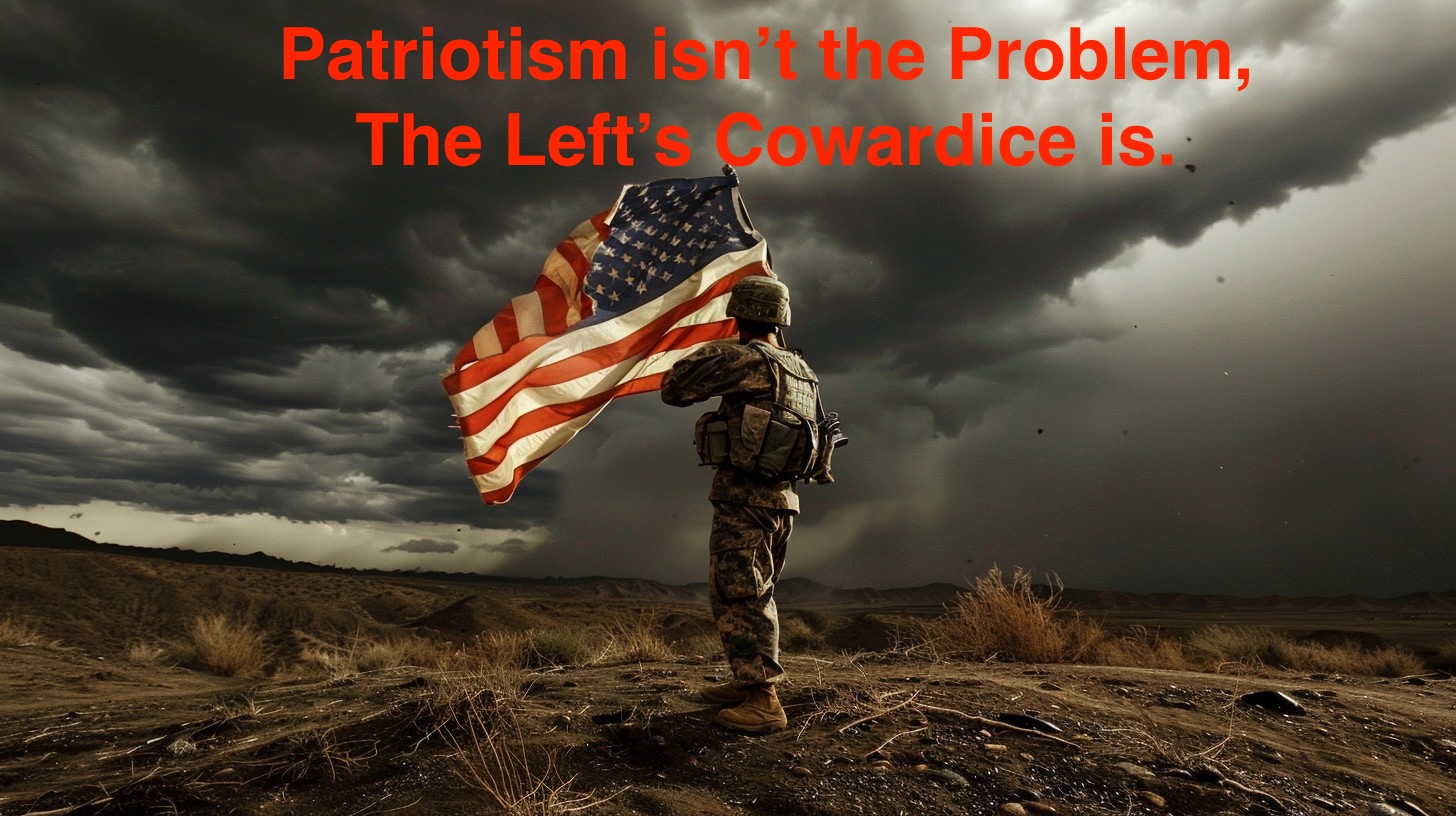John F. Kennedy, a World War II veteran and Democrat, famously said in his 1961 inaugural address: “Ask not what your country can do for you—ask what you can do for your country.”
Sixty years ago, that spirit of service and national pride united Americans across the political divide. Today, that sentiment is almost dead on the political left.
Modern progressives don’t talk about loving America. Their rallying cries sound more like:
• “America is racist!”
• “America is homophobic!”
• “I’m going to leave the U.S.!”
Compliments for America are rare on the left, while criticisms are endless.
Meanwhile, the right proudly wears the flag, sings about freedom, and calls America “the greatest country in the world.” On the left, though, patriotism is treated like a joke—or worse, a crime. Burning the American flag has, for some, become a bigger statement than standing for it.
And this isn’t a phase. It’s metastasizing, especially among young people, like a cancer in the American bloodstream.
What Happened to American Pride?
From Truman to Bush Sr., America had a common enemy: the Soviet Union. The Cold War wasn’t just a geopolitical struggle—it was personal. I grew up in the 1980s, when the threat of nuclear war hung over everything.
Movies, TV shows, even cartoons made it clear: the Soviets were the villains, and America stood for freedom. Patriotism wasn’t debated; it was lived. It was the air we breathed, grounded in tradition, family, and faith. These were the pillars that gave patriotism meaning beyond politics.
But when the Berlin Wall fell and the Soviet Union collapsed, our unifying enemy disappeared—and with it, the foundations of national pride began to crumble on the left. They rejected tradition, family, faith, and a shared national identity and began to turn to grievance.
Rather than rallying around a common American identity, the left began to emphasize individual labels:
• “African-American”
• “Mexican-American”
• “Lesbian-American”
These identities became boundaries. Individuals retreated into ever-smaller groups, defining themselves by what set them apart. Patriotism gave way to isolated causes—driven more by grievance than unity.
The Role of Democrat Politicians: Division for Power
This cultural shift wasn’t accidental. Democrat politicians fueled it.
Rather than pushing unity, they leaned into division, carving the country into smaller, angrier voting blocs.
They stopped talking about America’s potential and started selling the idea that the U.S. was fundamentally evil and needed to be “fixed”—by them, of course.
And now, instead of fighting real enemies like the Soviets or Islamic terrorists, the left is obsessed with fighting “Nazis”—their label for Americans who disagrees with them.
Mainstream Republicans, even moderates, are casually branded “Nazis,” “fascists,” and “threats to democracy.”
It’s lazy, it’s dishonest, and it disrespects the real history of those who fought actual fascism.
The Numbers Prove It: Patriotism Is Collapsing on the Left
Recent Gallup polls show just how far national pride has fallen:
• In 2024, only 34% of Democrats said they were “extremely proud” to be American, compared to 59% of Republicans.
• Only 29% of Democrats believe patriotism is “very important,” while 59% of Republicans still do.
Among younger Americans (ages 18–34), just 18% are “extremely proud” to be American.
Eighteen percent.
The next generation isn’t just skeptical about America—they’re being trained to hate it.
The Rise of Leftist Cynicism
The American flag? Problematic.
The national anthem? Offensive.
The military? Oppressive.
Critiques of racism, inequality, and injustice dominate the conversation. And while addressing injustice matters, trashing your own country isn’t the way to fix it.
Instead of seeing patriotism as a love for an imperfect but improvable country, the left treats it as a badge of shame.
Democrat politicians stoke this resentment, using identity politics and grievance culture as battering rams against national unity.
When Crisis Hits, Will We Even Remember We’re Americans?
History shows that existential threats can pull Americans together:
• After Pearl Harbor in 1941, America united to defeat the Axis powers.
• After 9/11, Americans put politics aside (at least for a while) to rebuild and remember who we were.
But do we have to wait for another national catastrophe just to remember we’re on the same side?
Conclusion: America Needs Patriots, Not Pessimists
The erosion of patriotism on the left isn’t random.
It’s the result of cultural rot, political division, and decades of blaming America instead of believing in it.
Without a common cause—or a willingness to be proud of the country that gave them their freedoms—many on the left have turned inward, inventing enemies and attacking their neighbors.
If America is going to survive the next century, it won’t be because we agree on everything. It will be because we love the place enough to fight for it—even when it’s flawed.
We need a revival of unapologetic patriotism. Not blind loyalty—but a belief that America is worth it.
Without that, we’re not a country anymore.
We’re just a bunch of angry tribes on borrowed time.

Leave a Reply